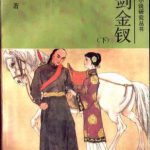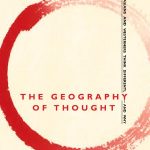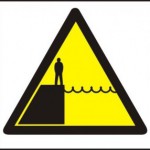Articles in the ‘Immersion and integration’ category Page 13
-
Learning how to fish: Or, why it’s essential to know how to learn
Learning how to learn Chinese is an essential skill for any student, regardless if you study on your own or in a course. This article explains why going to class is not enough.
Read → -
Two reasons why pronunciation matters more than you think
Good pronunciation matters, whether you like it or not. In general, students (and teachers) tend to stop caring about pronunciation much earlier than they should. You don’t need to aim for native-like pronunciation, but clear and easily-understood Chinese should be the goal of all students. In this article I present two arguments: one about the fact that pronunciation and communication are closely linked, one about how pronunciation reflects both you as a person and your other skills.
Read → -
A language learner’s guide to wuxia novels
Wuxia can be used as a key to both Chinese language and culture. This article is meant to be a guide to second language learners. If you want to read wuxia in Chinese, where do you start? How do you approach these novels? How do I find one which isn’t too hard? You will find the answers here!
Read → -
Wuxia, a key to Chinese language and culture
Wuxia is something genuinely Chinese and is great for learning both about the culture and the language. in this article, Sara K. introduces wuxia to Chinese learners and explains what it is, why it’s relevant for learners and how to get started with wuxia if you find it interesting.
Read → -
25 books I’ve read in Chinese, with reviews and difficulty ratings
I set the goal of reading 25 books in one year. This article is about the 25 books I read and is meant to serve as encouragement and inspiration. You might also find a book or two you want to read yourself! At the end of the article, I discuss my reading habits in general as well.
Read → -
Chinese immersion with Carl Gene Fordham
It’s widely known that immersion is an effective way of learning languages, but the details are less clear. How do you go about it? This article contains an interview with Carl Gene Fordham, who has many interesting things to say about how he learnt Chinese to an advanced level, as well as how we continued from there and became a translator and interpreter.
Read → -
Role-playing to learn more Chinese and avoid frustration
Focusing on meaning rather than form is usually a good idea. It allows you to communicate as opposed to just do drills, which is only useful in limited doses. However, caring too much about what you want to say rather than how you do it will sometimes make you unable to say much at all. In these cases, role play! You don’t need to answer questions truthfully in class. Exploring questions from different perspectives will not only help you learn more, it’s more fun as well!
Read → -
Review: The Geography of Thought: How East Asians and Westerners Think Differently… And Why
People often ask me about cultural differences between East Asia and West and if it’s true that people in different cultures really are all that different. I usually answer something along the lines of that the differences between individuals are bigger than those between cultures. After reading the book recommended in this article, though, I can say a lot more. Reading Richard Nisbett’s “The Geography of Thought” has helped me connect the dots and make sense of some of the differences between East Asia and the West. It’s an enjoyable as well as thought-provoking read.
Read → -
Asking the experts: How to bridge the gap to real Chinese
Many students of Chinese think that it’s hard to bridge the gap from textbook Chinese to the Chinese used by native speakers in the real world. This article contains useful insights and hands-on advice from more than 20 language learners and teachers. The overall message is encouraging: the gap can certainly be bridged, you just need the right attitude and the right method!
Read → -
Preparing for rainy days and dealing with slumps
We all experience slumps in our learning, but there are many things we can do to reduce the negative effects of these slumps. The solution is three-fold: Preparing for the slump before it hits you, finding learning activities that don’t feel like work and paying attention to what you feel capable of at the moment. You will still experience slumps, but hopefully they will be less severe!
Read →









